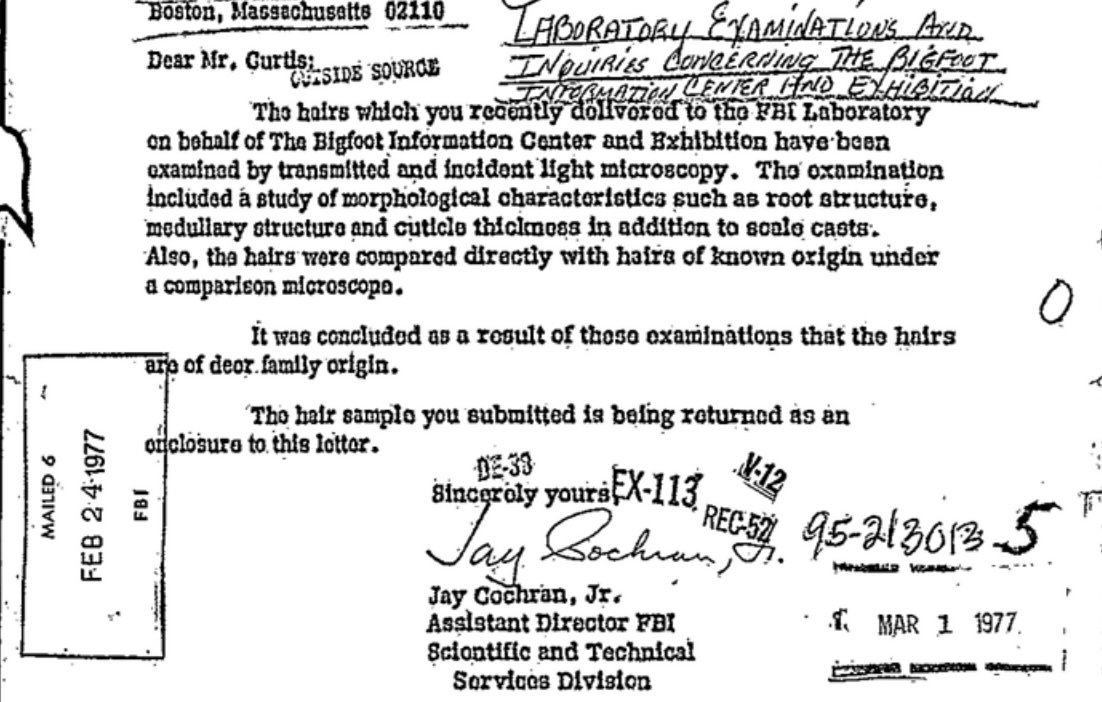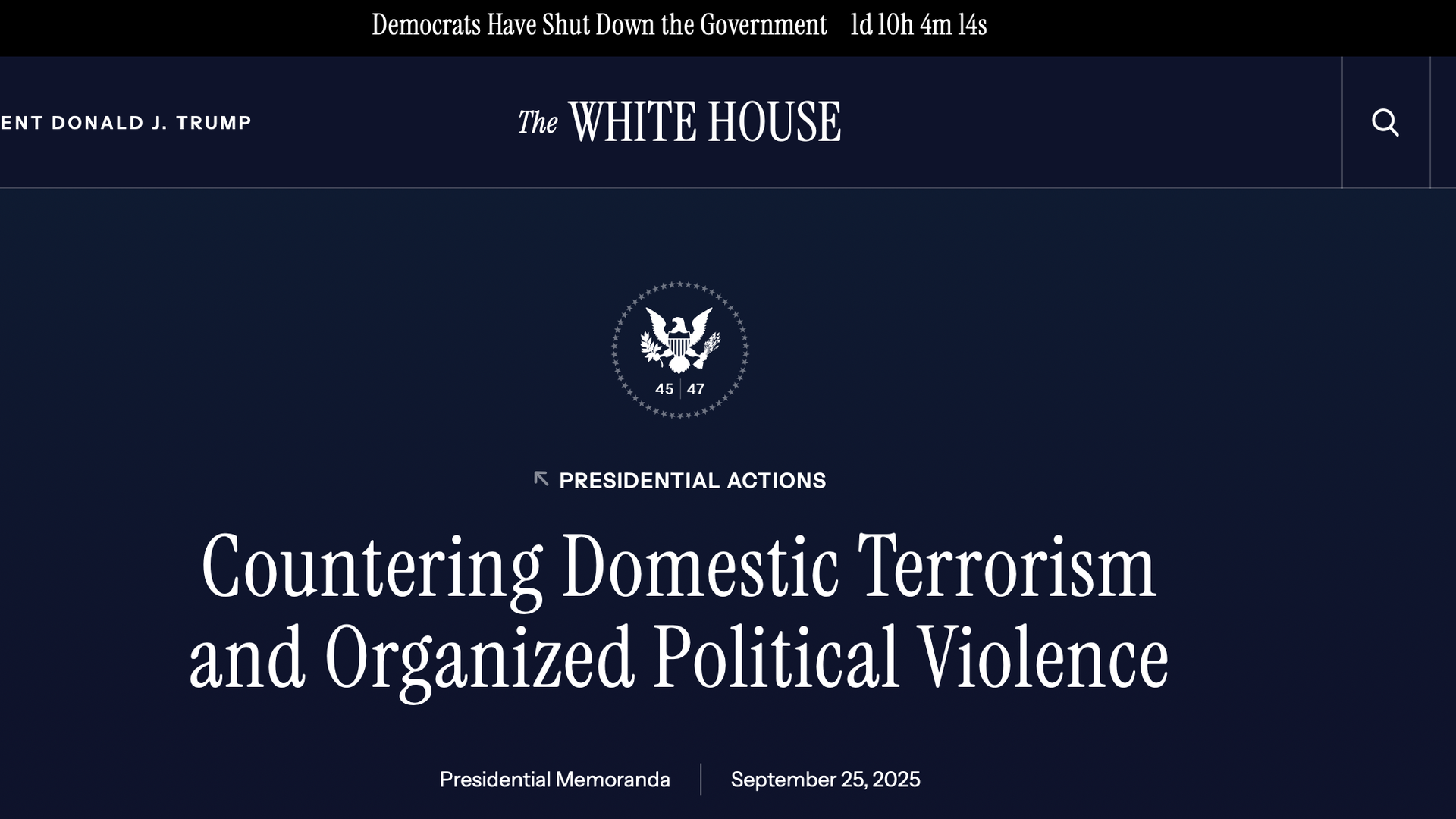Dear Friend of Press Freedom,
I’m Lauren Harper, the first Daniel Ellsberg chair on government secrecy at Freedom of the Press Foundation (FPF), and welcome to “The Classifieds.” Read on to learn about this week’s top secrecy news.
Trump’s missing national security directive
President Donald Trump recently issued a national security directive that attempts to create a national strategy to investigate and disrupt organizations that foment political violence.
In other words, the administration appears to be reviving COINTELPRO tactics against any kind of organization — or at least that’s how it feels. (It’s important to underscore that the National Security Presidential Memorandum itself creates no new law, rather, it instructs law enforcement to use existing tools aggressively.)
Ken Klippenstein notes that national security directives, which this administration calls NSPMs, are normally secret. It’s true, but this Trump administration has made most of theirs public, at least so far.
Here’s the list:
NSPM-1 - Organization of the National Security Council
NSPM-3 - America First Investment Policy
NSPM-4 - Military Mission for Sealing the Southern Border of the United States and Repelling Invasions
NSPM-6 - ?
NSPM-7 - Countering Domestic Terrorism and Organized Political Violence
This begs the question, what’s the sixth NSPM? FPF filed Freedom of Information Act requests with the federal agencies who likely received communications about it in an attempt to find out.
The most frustrating FOIA denial FPF got this week
FPF filed over a dozen FOIA requests this week, seeking more information on everything from Defense Secretary Pete Hegseth’s ongoing attacks on whistleblowers, immigration officers’ attacks on journalists, and much more.
And agency responses to our FOIA requests are starting to roll in, including an unbelievable denial from the FBI.
In response to our request that the bureau expedite the release of its tape of “border czar” Tom Homan being bribed, the FBI’s FOIA office said we hadn’t provided proof that there was an urgent need to provide more information to the public about the sting.
It’s frustratingly common for FOIA offices to deny requests for expedition, even though it is plain to see why the public should have as much information as possible about Homan’s integrity considering his ongoing, leading role in immigration implementation.
We’re appealing. You should, too, if an agency denies your arguments for fast-tracking a request.
Expedite a FOIA lawsuit? Trump administration wants $50K first
The Justice Department recently asked a federal court to force The James Madison Project and journalist Brian Karem to pay $50,000 if the court expedited their suit for information about the classified documents Trump stole from the public and unlawfully took to Mar-a-Lago.
This is concerning for several reasons.
Despite the name, FOIA isn’t free, and fee bullying is an old problem. In one notorious example, the Drug Enforcement Administration told a FOIA requester that it would cost nearly $1.5 million to produce documents about Mexican cartel boss “El Chapo.”
It often takes years for requesters to get their documents through FOIA. The most recent data available shows that it takes the U.S. Central Command an average of 1,011 days to process FOIA requests, the Department of State needs roughly 564 days, and U.S. Immigration and Customs Enforcement takes around 210 days.
Even expedited processing can take years. The Justice Department granted FPF’s expedited processing request for the legal memo justifying the Trump administration’s acceptance of Qatar’s $400 million luxury jet — then told us it would still take 620 days to release it. We had to sue and are still waiting.
Suing is often requesters’ only hope for document production. It’s already time and resource intensive — and the Trump administration is trying to make it even more so.
Here are my top reads from this week. To see my full reading list for all things secrecy, check out The Classified Catalog.
What I'm Reading
An American friend: The Trump-appointed diplomat accused of shielding El Salvador’s president from law enforcement
This article is a great example of why inspectors general offices — which are currently under increasing threat — are so important, and why public access to their reports is critical for oversight.
Five takeaways about the culture of lawlessness in the U.S. special forces
This series shows what the culture of vigilantism in the military leads to and the lives it ends. It also shows why FOIA matters most at places like the Pentagon. Accountability is never a guarantee — especially now. But without FOIA, it doesn’t stand a chance.
Transparently yours,
Lauren Harper
Daniel Ellsberg Chair on Government Secrecy
Freedom of the Press Foundation

P.S. In October, we’re looking back at some of the eeriest government documents that have been released, largely thanks to FOIA. This week? Records released by the FBI in 2019 detail a 1970s exchange where an Oregon man convinced a bureau lab to test hairs he believed belonged to Bigfoot. The hairs’ real origin? Likely a deer. Read the exchange in the FBI’s records vault.
Want to keep records like this public? Tell Congress to protect FOIA.





